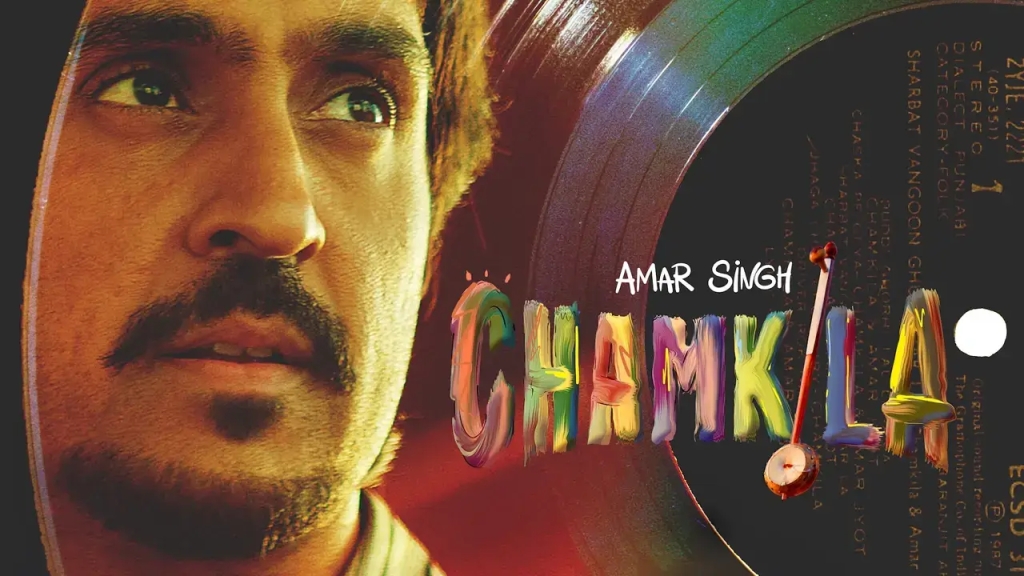

Although it’s only been four years since filmmaker Imtiaz Ali released his last film (a 2020 reboot of his own Love Aaj Kal), it has arguably been at least nine years since his last “good” film Tamasha. As a director well-renowned for his craft and imaginative style, Ali’s filmography took a serious tumble with movies like Jab Harry Met Sejal and Love Aaj Kal (2020), and it seemed like the clock had run out for one of Bollywood’s most defining filmmakers. However, in his latest film Amar Singh Chamkila, director Imtiaz Ali returns to form with an unexpected and fascinating portrait of the titular Punjabi folk singer. Although music biopics are very rare in Hindi cinema, director Imtiaz Ali helms this thematically and narratively charged story like a seasoned pro, developing a non-linear take on the artist’s life that asks prudent questions about the nature of censorship and artistry. It’s the type of sophisticated and democratized filmmaking that we don’t necessarily see a lot of in Hindi cinema anymore; if perhaps Amar Singh Chamkila falls too far into some of its eccentricities and dips into some formula, it’s an engaging and intriguing depiction of an artist whose life was unfairly taken.
Amar Singh Chamkila features strong performances from its ensemble cast, namely the Renaissance man of music and film Diljit Dosanjh, whose sensitive and nuanced turn as Chamkila feels both vivid and empathetic. Previously the performer played a slightly fictionalized version of the singer in Punjabi film Jodi, and it’s clear to see the intentionality that Dosanjh puts into essaying the character. It’s also worth looking out for Anjum Batra as Kesar Tikki as well as an understated turn from Parineeti Chopra as Amarjot Kaur, as Chopra sings several songs in the film and acts as a great addition to the film.
Amar Singh Chamkila is a unique story deeply rooted in the world of Punjabi folk music and perhaps even more intriguing because it’s a story that speaks to ideas around obscenity, censorship, and liberation in media. Director Imtiaz Ali (who also co-wrote the film alongside Sajid Ali) finds a surprising truth in Chamkila’s music and legacy; while many objected to his provocative lyrics, there were so many who found truth and enjoyment in them as well. For a nation whose media continues to be regulated and censored, and where taboos around sex continue to silence important stories, the songs of Amar Singh Chamkila raised a key question about the identity of Punjabi folk music and India at large. Beyond these broader ideas, however, this is also a film about a singular person, one whose passion for music and dedication to the audience dictated the events of his life, for better and worse. Although Amar Singh Chamkila is a bit too long at nearly 2h 25m and sometimes overindulges in style, it’s the type of weighty filmmaking that only a director like Imtiaz Ali could tackle. With a sparkling soundtrack by A.R. Rahman and featuring many of Chamkila’s original songs, this tragic story about love, music, and passion lingers on after the credits roll.

Leave a comment